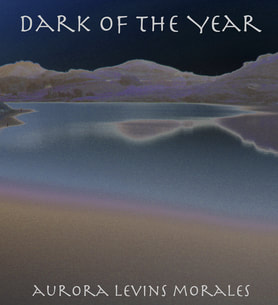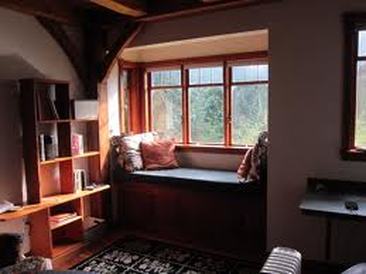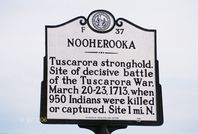DARK OF THE YEAR

These are the poems that came out of the wreckage of a marriage, my attempts to wrestle with love found and lost, to understand betrayal and solidarity in a larger context than my immediate and personal pain. The collapse of my relationship took place amidst the wreckage and political aftermath of the 9/11 attacks, at a time of political repression and heightened fearfulness, and although many factors led to our disintegration, it seemed to me that the turmoil of the world was one.
I wrote:
You couldn't see the hand of history, only my hand.
Soon every phrase from my lips was a possible suicide bomber,
the cease fires never held, negotiations spoke of everything but love,
you wanted guarantees that your inner enemies
would be stopped at the border between your paranoia and my kiss,
and you stopped imagining the possibility of peace.
I wrote:
You couldn't see the hand of history, only my hand.
Soon every phrase from my lips was a possible suicide bomber,
the cease fires never held, negotiations spoke of everything but love,
you wanted guarantees that your inner enemies
would be stopped at the border between your paranoia and my kiss,
and you stopped imagining the possibility of peace.
Salt: February, 2000
 I wrote this poem at Hedgebrook writing retreat for women, after one more difficult phone call.
I wrote this poem at Hedgebrook writing retreat for women, after one more difficult phone call.
Your anger flares into the distance like a train.
Then dark peace rises, bitter and strong.
I stand alone among the cedars, in the scent of rain.
What is still here? In the pumphouse tanks,
water keeps rising from the earth,
piped to our throats, cool,
tasting of stone. My wedded heart still does its dance.
My hands want to trace your bones, the hollow of your temple,
stubborn jaw, the place where neck meets collarbone,
with rain on my fingers. Something that simple.
Something that obvious, inexplicable and pure.
To taste on your lips, without a word,
salt of the sorrow you endure.
Then dark peace rises, bitter and strong.
I stand alone among the cedars, in the scent of rain.
What is still here? In the pumphouse tanks,
water keeps rising from the earth,
piped to our throats, cool,
tasting of stone. My wedded heart still does its dance.
My hands want to trace your bones, the hollow of your temple,
stubborn jaw, the place where neck meets collarbone,
with rain on my fingers. Something that simple.
Something that obvious, inexplicable and pure.
To taste on your lips, without a word,
salt of the sorrow you endure.
Historical Marker, May, 2002

The young woman my middle-aged husband had an affair with, and used as an exit from our marriage, was descended from white settlers on Indigenous lands in Iowa. Her attitude of entitlement and innocence reminded me forcibly of the justifications of conquest.
She says she doesn't want
the baggage of my crumbling marriage,
that any land she enters with my love
will be new land, a clean slate.
She believes there are places outside history,
that the dips in the ground are not the ruts of wagon wheels
axles groaning, that traveled this road before her.
The new settlers in occupied lands always sing this song:
empty, fruitful, virgin. They say that because the houses
are made of deerskin, or birch, or mud
they are not really houses,
that because the rain will
wash out the stains of blood on the stones
no one was here. Don't believe it, I tell her.
Five hundred years after the slaughters,
the names of those whose history
shaped the bed you lie in
still bleed through.
She says she doesn't want
the baggage of my crumbling marriage,
that any land she enters with my love
will be new land, a clean slate.
She believes there are places outside history,
that the dips in the ground are not the ruts of wagon wheels
axles groaning, that traveled this road before her.
The new settlers in occupied lands always sing this song:
empty, fruitful, virgin. They say that because the houses
are made of deerskin, or birch, or mud
they are not really houses,
that because the rain will
wash out the stains of blood on the stones
no one was here. Don't believe it, I tell her.
Five hundred years after the slaughters,
the names of those whose history
shaped the bed you lie in
still bleed through.